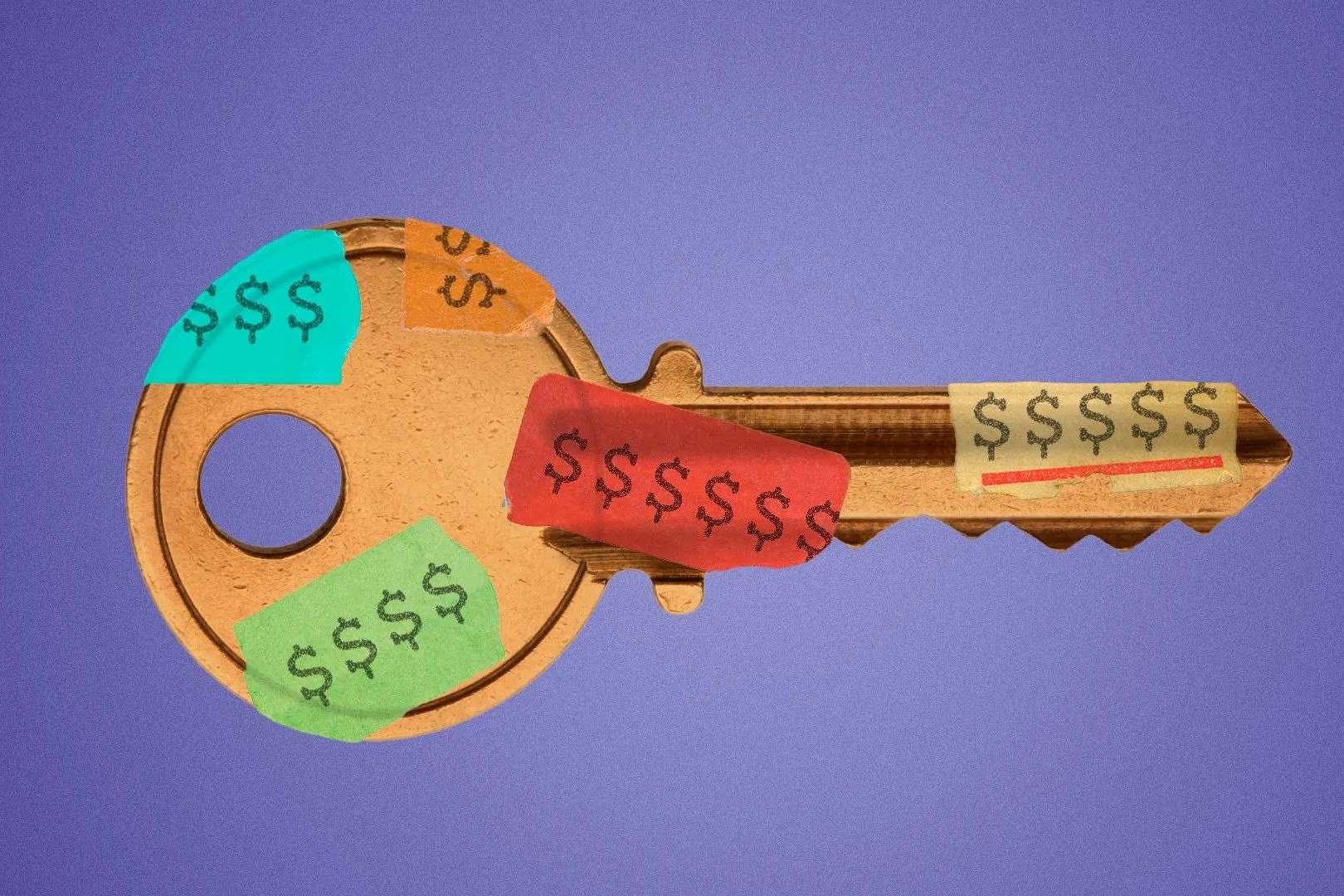Home>Ideas and Tips>Property Liens: How They Affect Your Home’s Value


Ideas and Tips
Property Liens: How They Affect Your Home’s Value
Published: October 28, 2024
Discover how property liens impact your home's value, the selling process, and strategies to resolve them for smoother real estate transactions.
(Many of the links in this article redirect to a specific reviewed product. Your purchase of these products through affiliate links helps to generate commission for Storables.com, at no extra cost. Learn more)
When it comes to buying or selling a home, one of the most critical aspects to consider is the presence of property liens. A lien is a legal claim or right against a property instituted by a creditor to secure debts or obligations owed by the homeowner. In this article, we will delve into the types of liens that can affect property sales, how they impact the selling process, and strategies for addressing them.
Types of Liens Affecting Property Sales
Mechanic’s Liens
A mechanic’s lien is a security interest in the title to the property for anyone who has supplied labor or materials that improve a home. Contractors, subcontractors, or suppliers commonly place this lien without payment for services provided. For instance, if a contractor completes work on a home but is not paid, they can file a mechanic’s lien against the property. This type of lien complicates or prevents a sale until the lien is satisfied or removed.
Judgment Liens
Judgment liens result from a court ruling that grants a creditor the right to take possession of a debtor’s property if the debtor fails to fulfill their financial obligations. This type of lien can attach to a house due to various judgments and complicates or prevents a sale until the lien is satisfied or removed.
Mortgage Liens
Mortgage liens are placed on property as security for a mortgage loan. While a mortgage lien is a standard part of purchasing a property with a loan, issues arise when a property is sold with a mortgage lien exceeding the property’s sale price. This scenario requires special arrangements for the sale, such as a short sale agreement with the lender.
Read more: How To Put A Construction Lien On A Property
How Liens Affect the Selling Process
Discovery During Title Search
Liens are typically discovered during the title search process. Title searches are conducted by the mortgage lender granting a home loan to check for any encumbrances or claims against the property. Finding a lien can lead to delays because buyers and lenders will usually not proceed with the transaction until the lien is resolved. Clearing a lien can be time-consuming and requires negotiation with lienholders or payment of the owed amounts.
Negotiation and Resolution
Negotiating the resolution of a lien involves communication between the property owner, the lienholder, and sometimes legal representatives. Strategies may include paying off the lien in full, arranging for its transfer to another property, or negotiating a reduced payment to satisfy the lien. Successful negotiation is vital to moving forward with the sale.
Liens and Closing Complications
One of the most immediate effects of a lien on a property sale is the potential delay in closing. The delays occur because liens must be resolved before a sale can close. Resolving liens often requires additional time for negotiation, payment, and the acquisition of release documents. These steps add more complexity to the transaction and can significantly extend the timeline.
Legal and Financial Ramifications
The legal and financial ramifications of unresolved liens at closing can be substantial. For sellers, failing to clear liens can lead to legal action from buyers, especially if the liens were not disclosed before the transaction. For buyers, proceeding with a purchase without resolving liens can result in being held responsible for the debt, causing severe financial implications. Mortgage lenders are unlikely to finance a purchase until all liens are cleared.
Best Practices for Sellers and Buyers
Understanding liens is crucial for sellers and buyers in property transactions. Here are some best practices:
- Disclosure: Sellers should disclose any known liens to potential buyers. This transparency helps avoid legal issues and ensures that both parties are aware of the situation.
- Title Search: Conducting a thorough title search is essential. This process helps identify any existing liens and allows for early resolution.
- Negotiation: Negotiating with lienholders is critical. Sellers should work with real estate attorneys or other professionals to negotiate settlements or payments.
- Payment Arrangements: If possible, sellers should make payment arrangements to clear liens before listing the property. This can streamline the selling process.
- Legal Advice: Both sellers and buyers should seek legal advice if they encounter liens during a transaction. Legal professionals can guide through complex negotiations and ensure compliance with local laws.
Can You Sell a House with a Lien?
Yes, it is possible to sell a house with a lien on it, but it requires careful handling. Here’s how:
- Payment During Escrow: When selling a house with a lien, the escrow agent will typically use the proceeds from the home sale to pay off any outstanding debts. If there is enough equity in the home, this process can remove the lien.
- Special Considerations: If there are multiple liens or if the total dollar amount of all liens exceeds the home’s equity, the sale may not proceed smoothly. In such cases, alternative arrangements might be necessary, such as finding another way to clear the title for the buyer.
- Voluntary vs Involuntary Liens: Voluntary liens (like mortgages) are generally easier to manage because they are expected as part of securing a loan. Involuntary liens (like tax liens or judgment liens) can complicate matters significantly and require more urgent attention.
Impact on Home Value
Liens can significantly impact a home's value by:
- Reducing Marketability: The presence of liens can scare off potential buyers who are unaware of the situation or who are hesitant about taking on additional financial obligations.
- Lowering Sale Price: If a property is heavily encumbered by liens, its sale price may need to be significantly reduced to attract buyers willing to take on these liabilities.
- Affecting Financing Options: Most mortgage lenders will not finance a home that already has a lien attached to it unless the lien is resolved or removed. This limits the pool of potential buyers and can make it harder for sellers to find a buyer.
Strategies for Addressing Liens
- Clearing Liens Before Listing: Sellers should try to clear any known liens before listing their property. This step can expedite the selling process and avoid complications during negotiations.
- Communicating with Buyers: Sellers should clearly communicate any existing liens to potential buyers. Transparency helps build trust and avoids misunderstandings later on.
- Seeking Professional Help: Working with real estate attorneys or other professionals experienced in handling liens can be invaluable. They can guide through complex negotiations and ensure compliance with local laws.
- Payment Plans: If clearing liens entirely is not feasible, sellers might consider negotiating payment plans with lienholders that allow buyers to take over these obligations.
Special Considerations for Homeowners
- Understanding Your Rights: Homeowners should understand their rights regarding liens and how they can affect personal finances beyond just real estate transactions.
- Personal Credit Impact: Even unsecured debts or other kinds of liens that don’t affect real property can still tarnish personal credit scores negatively, making it harder to secure future loans or credit lines.
- Legal Action Against Slander of Title: If someone places a lien on your home without your permission, you may be able to sue them for slander of title under certain state laws.
Conclusion
Property liens are a significant factor in real estate transactions that can either complicate or streamline the process depending on how they are managed. Understanding the types of liens, their impact on home value, and strategies for addressing them is crucial for both sellers and buyers. By being proactive about disclosing and resolving liens early on, sellers can ensure smoother transactions and avoid costly delays or complications down the line.
In summary:
- Mechanic’s Liens are placed by contractors for unpaid work.
- Judgment Liens result from court rulings granting creditors rights over debtor’s properties.
- Mortgage Liens secure mortgage loans but can complicate sales if exceeding property value.
- Discovery During Title Search reveals existing liens which delay transactions until resolved.
- Negotiation & Resolution involve communication between owners & lienholders; strategies include payment or transfer arrangements.
- Liens & Closing Complications cause delays due to required negotiations & document acquisition; unresolved liens lead to legal & financial ramifications.
- Best Practices include disclosure transparency; thorough title searches; professional negotiation; payment arrangements; seeking legal advice.
- Selling with Liens involves using escrow funds for debt repayment; special considerations include multiple liens exceeding equity; voluntary vs involuntary liens impact differently.
- Impact on Home Value includes reduced marketability; lower sale prices; affected financing options limiting buyer pools.
- Strategies for Addressing Liens include clearing before listing; communicating with buyers; seeking professional help; negotiating payment plans allowing buyers take over obligations.
By understanding these aspects comprehensively, homeowners can navigate complex lien situations effectively ensuring smoother real estate transactions overall.
Was this page helpful?
At Storables.com, we guarantee accurate and reliable information. Our content, validated by Expert Board Contributors, is crafted following stringent Editorial Policies. We're committed to providing you with well-researched, expert-backed insights for all your informational needs.















0 thoughts on “Property Liens: How They Affect Your Home’s Value”